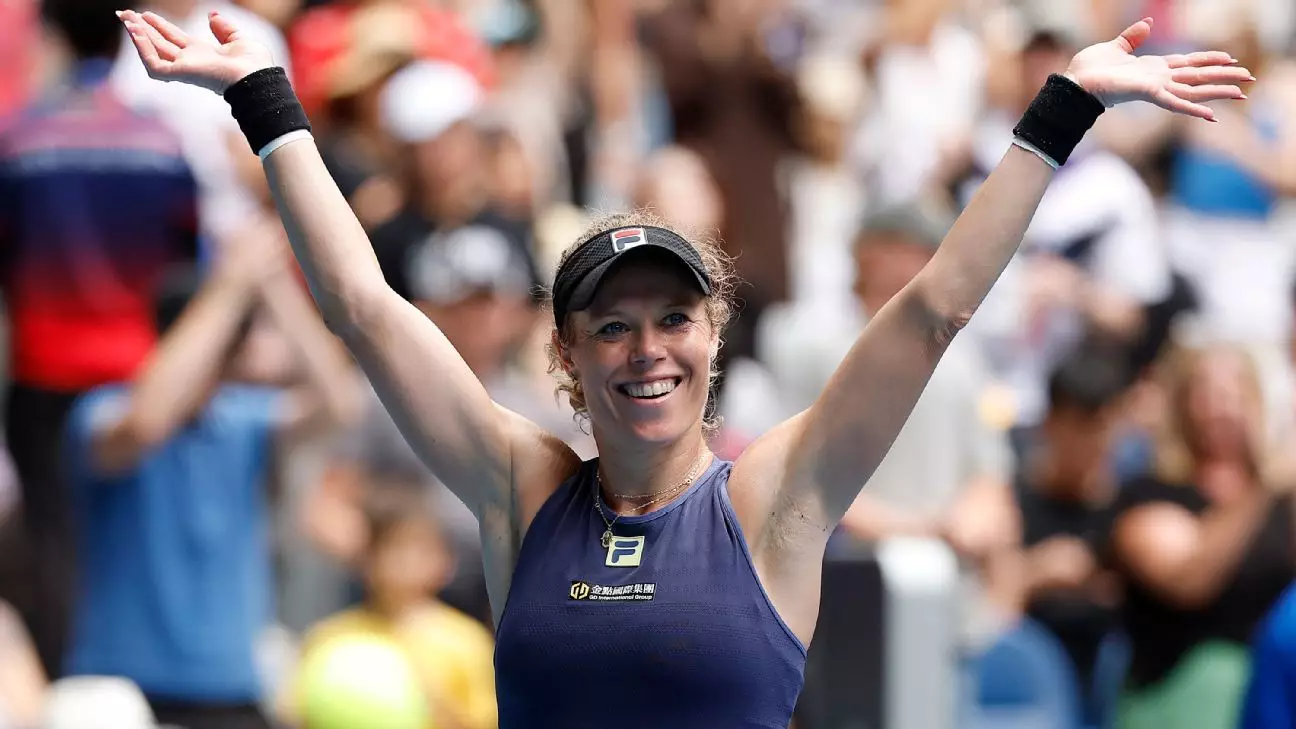The 2024 Australian Open kicked off with thrilling matches, but none captured the audience’s attention quite like the shocking defeat of Qinwen Zheng by Laura Siegemund. The 36-year-old German player, ranked No. 97, demonstrated relentless aggression and resilience that ultimately sent Zheng packing in the second round—a stark contrast to Zheng’s memorable run to the finals last year. As the dust settles on this unexpected match, it is essential to delve into the implications of this upset and its significance in the tennis world.
Zheng’s trajectory since last year’s Australian Open has been impressive. After her runner-up finish against Aryna Sabalenka, Zheng secured an Olympic gold medal in Paris, further establishing her as a formidable force in women’s tennis. However, this year, her anticipated start quickly spiraled into disappointment. The loss to Siegemund not only marked an abrupt end to her campaign but also raised questions regarding her current form, mindset, and ability to handle pressure right from the beginning of the season.
In her own words, Zheng reflected on her performance, saying, “I feel maybe today is not my day.” This sentiment highlights the psychological burden athletes often carry. It is clear that her early shoe change and the time warning she received from the chair umpire hindered her concentration. The pressure that comes with expectations can often lead to errors, and Zheng’s comments indicate she may have been overwhelmed in a crucial moment.
In stark contrast, Siegemund approached the match with a sense of freedom and confidence. She recognized that she had little to lose against a top player, leading her to seize her opportunities aggressively. With a blend of strategic play and a fearless mentality, she managed to capitalize on Zheng’s hesitance. Siegemund’s performance not only embodied her experience but also highlighted her tenacity, as she executed a masterful tiebreaker and struck powerful shots that consistently put Zheng on the back foot.
The match wasn’t without its challenges for Siegemund, as she experienced a momentary lapse when she lost her serve while attempting to clinch the first set. However, her ability to rebound quickly from that setback by dominating the tiebreaker demonstrated her resilience. With this victory, Siegemund became the first unseeded German woman to defeat a Top 5 seed at the Australian Open since 2003, underlining the significance of her achievement during this tournament.
Zheng’s loss took place simultaneously as last year’s finalists clashed on nearby courts, showing the dual narratives of triumph and defeat present at the Australian Open. Aryna Sabalenka, defending her title, continued to assert her dominance with a hard-fought victory against Jessica Bouzas Maneiro. Despite Sabalenka’s straight-sets win, the match proved to be a substantial challenge, signaling that even top players are not guaranteed an easy path.
On the other hand, Jessica Pegula comfortably advanced to the third round, further demonstrating the competitive landscape of women’s tennis. With emerging force Leylah Fernandez and the young talent Mirra Andreeva also winning their matches, the tournament promises to feature a convergence of both established champions and fresh faces.
Concerns for the Future
Zheng’s defeat has implications that extend beyond a single match. It serves as a reminder that consistency is a volatile element in sports, and even the brightest stars face crossroads that can shape their futures. Her upcoming performance in subsequent tournaments will be crucial, as regaining confidence is pivotal for any athlete looking to re-establish dominance after a setback.
Conversely, Siegemund’s victory presents an invigorating story of perseverance and the unpredictable nature of sport, showcasing that age does not capture an athlete’s spirit or potential. Moving forward, her confidence will be critical as she aims to surpass her previous limits in a tournament where she has yet to progress past the third round.
As the tournament continues, one cannot help but be captivated by the narratives of victory and defeat unfolding on the courts of Melbourne. The Australian Open serves as a battleground where stories of resilience, talent, and mental fortitude collide, fueling the excitement and anticipation for the remainder of the tournament.


Leave a Reply